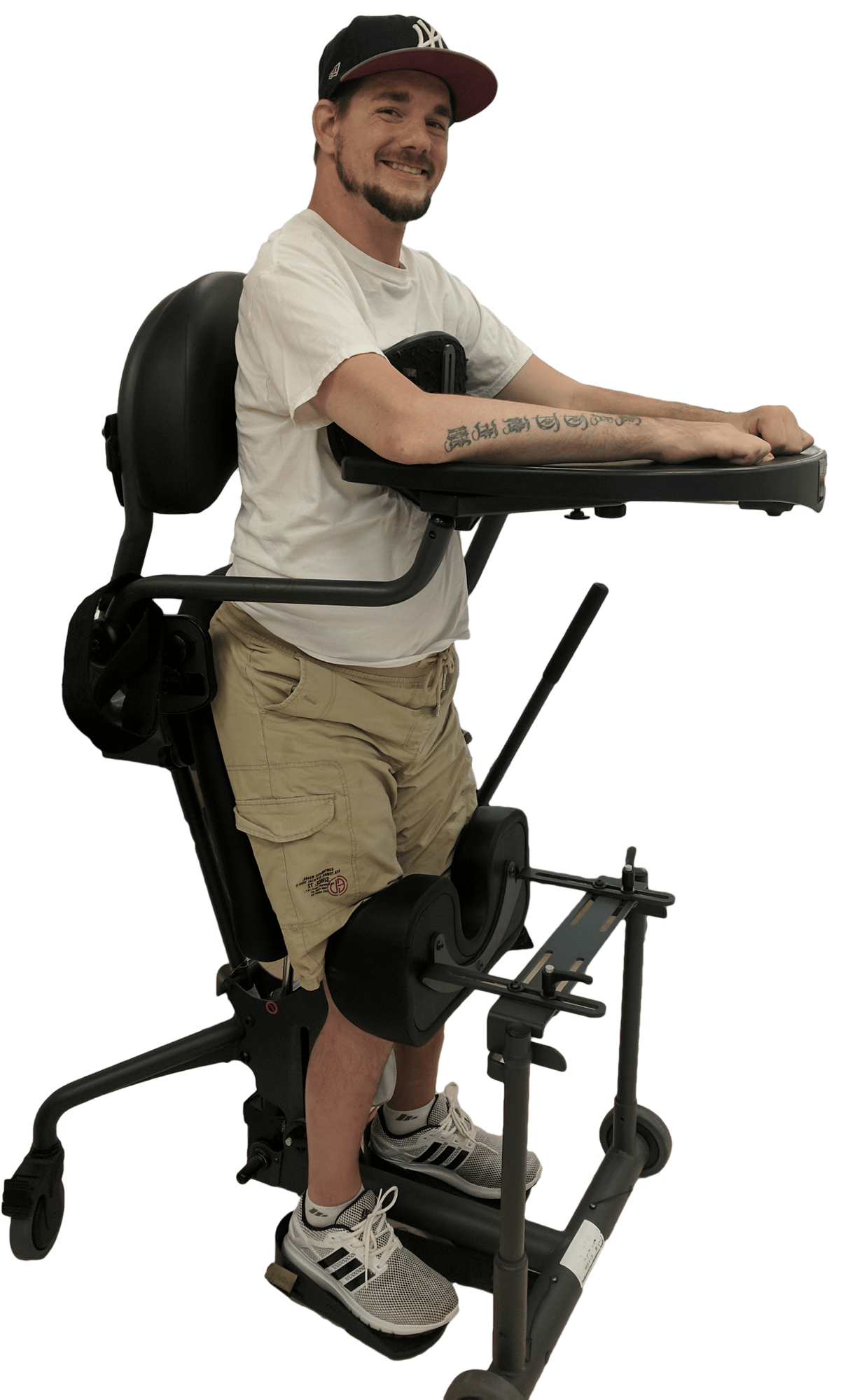
"It only takes one wrong dive to change your life forever”
- Joe Graham, spinal cord injury patient

Joe’s story:
Joe Graham was on a family vacation when he spotted a group of children diving into the hotel pool.
The father of two maneuvered his wheelchair over to strike up a friendly conversation with the kids and their parents, and caution them that small pools - like the one they were playing in - were not meant for diving.
The kids listened politely but resumed diving soon after Joe left, much to his dismay.
“I get it,” he said. “I was told to be careful a billion times as a kid, but I felt invincible. It’s a lesson I learned the hard way.”
Joe described his younger self as someone with an “adventurous streak” who loved BMX, skateboarding, snowboarding and was “really enthusiastic about life.”
“I was living so fast that everything I did was just to have fun,” he said. “It led me to do a lot of silly things without thinking about potential consequences. But one day, my ticket got punched.”
To help prevent diving injuries, keep these important tips in mind:
The safest way to enter the water is always feet first.
Never dive into an above-ground pool.
Water depth isn’t the only thing to consider when assessing diving safety. Injuries can also happen when divers, like Joe, strike the sides of pools or other water environments.
Don’t “drink and dive.” Drinking can lead to impaired judgement, coordination, and delayed reaction time.
Remember that the underwater terrain in oceans, lakes, rivers, and ponds is always changing. Sandbars and rocks can shift from tides and weather and murky water may hide these changes from sight.
Always go one at a time on diving boards and swim away immediately after your turn to make room for other divers.
Just because you have dived somewhere safely in the past doesn’t mean that your next dive will also be safe. Don’t assume … ThinkFirst!
Never swim or dive alone.
Did you know?
Diving is also the MOST PREVENTABLE cause of spinal cord injuries and can happen in any kind of water environment including pools, ponds, lakes, rivers or oceans.